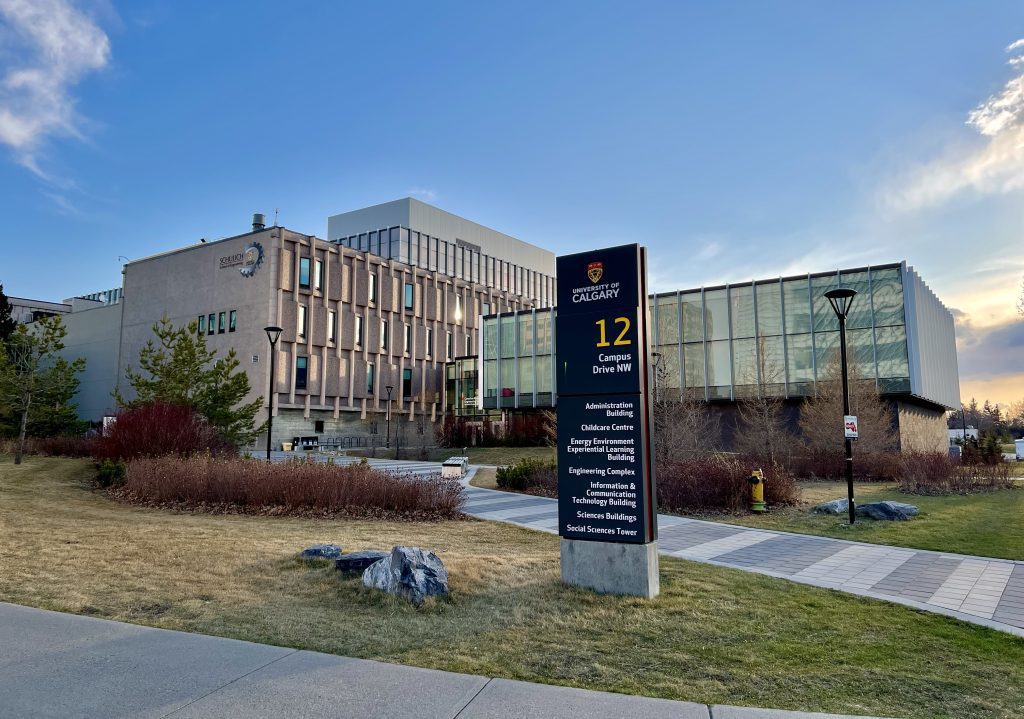Branching Out: The Growth of Social Sciences in Canada
Intro: Social Sciences in Canada
Social Sciences in Canada: In recent years, the landscape of education in Canada has witnessed a remarkable transformation, particularly in the realm of social sciences. This transformation is not just confined within the borders of the country but extends its branches globally, making the study of social sciences in Canada a pivotal part of the global education tree.
The growth of social sciences in Canada reflects an evolving society that values diverse perspectives, critical thinking, and a deeper understanding of human behaviors and societal structures. This blog post delves into the expansion and significance of social sciences in Canada, exploring how this field of study is not just growing but thriving and contributing significantly to both national and global conversations.

Understanding the Foundation: Social Sciences in Canada
The array of disciplines within the social sciences in Canada—spanning sociology, psychology, anthropology, economics, political science, and beyond—provides a crucial lens through which to examine and understand the myriad complexities of society. Canadian academic institutions have been at the forefront of embracing these disciplines, by fostering environments rich in research, innovation, and comprehensive academic programs. These institutions understand the critical role that social sciences play in dissecting the intricacies of human behavior, societal changes, and global phenomena.
Canada’s distinct multicultural fabric enhances the study and application of social sciences, offering both students and researchers a unique vantage point from which to explore and analyze global and domestic issues. This multicultural backdrop is not just a setting but a dynamic participant in the learning process, contributing to a diverse and enriching educational experience that prepares individuals to think deeply about societal structures and individual interactions within those structures.
Through substantial investments in research centers and initiatives, Canada bolsters the social sciences, nurturing an academic community that is vibrant, engaged, and continually pushing the boundaries of traditional inquiry. This commitment not only strengthens the foundation of social science studies in the country but also reinforces Canada’s position as a leader in addressing and understanding complex societal issues on both a national and international stage. The dedication to advancing the field ensures that social sciences in Canada remain a fertile ground for innovation, critical thinking, and transformative learning experiences.
The Education Tree: A Metaphor for Growth and Connection
The metaphor of the education tree beautifully illustrates the dynamic and interconnected nature of social sciences in Canada. Like a tree that thrives through the interplay between its roots, trunk, branches, and leaves, social sciences draw strength from a diverse foundation of knowledge, methodologies, and insights. The roots, representing the rich history and foundational theories of social sciences, anchor the discipline firmly in a tradition of inquiry and understanding.
From these roots, the trunk emerges—symbolizing the core academic programs and institutions that support and elevate the study of social sciences. This solid foundation allows for the growth of branches, which reach out in various directions, mirroring the interdisciplinary approaches and connections social sciences make with other fields of study. The leaves, vibrant and diverse, signify the multitude of perspectives, cultures, and ideas that students and researchers bring to the discipline, enriching it with their unique contributions.
This living system of education not only nourishes those who delve into the social sciences but also fosters an environment where new ideas can flourish, and existing ones can be challenged or expanded. It emphasizes the importance of connectivity—not just within the discipline, but also with the society at large and the global community. Through this expansive and nurturing framework, social sciences in Canada continue to evolve, adapting to new challenges and discoveries, and in the process, contributing to the growth and well-being of society as a whole.
Also visit:-
Cultivating Global Citizens Through Social Sciences
The role of social sciences in Canada extends far beyond the confines of academic study; it is a crucial component in shaping individuals who are not only well-versed in global issues but also deeply committed to acting on them. By integrating a curriculum that places a strong emphasis on understanding diversity, equity, and the myriad challenges faced by communities around the world, social sciences empower students with a holistic view.
This educational approach encourages learners to step into the shoes of others, fostering empathy and a profound sense of social responsibility. Students are exposed to a variety of perspectives and taught to critically analyze how societal structures impact individuals differently based on geography, culture, and socioeconomic status. This exposure is not merely academic; it involves active engagement through community service, internships, and collaborations that transcend borders, offering students tangible experiences in tackling real-world problems.
Such an education equips students with the skills and knowledge to make meaningful contributions, whether in policy-making, social advocacy, or community development, on a global scale. As they embark on their careers, graduates of Canadian social sciences programs carry with them not just an education, but a commitment to leveraging their insights for the greater good, embodying the ideals of global citizenship in every endeavor.
Canadian Social Sciences on the World Stage
Canadian social science scholars and their research endeavors have gained notable acclaim on the international scene, firmly establishing Canada as an influential player in this academic domain. The country’s researchers are frequently at the heart of collaborative ventures with peers around the globe, engaging in innovative studies that tackle some of the most pressing issues facing the world today, from the ramifications of climate change to the deep-seated roots of inequality and the challenges of ensuring public health.
These collaborative efforts not only raise Canada’s profile in the academic community but also promote a spirit of global cooperation and shared inquiry. The impactful work emanating from Canada’s social sciences faculties does more than just contribute to the nation’s esteemed academic standing; it plays a pivotal role in fostering international dialogues that bridge cultures and disciplines.
By participating in and often leading such cross-border collaborations, Canadian social scientists ensure that their work is not just locally relevant but resonates on a global scale, contributing valuable insights and methodologies that help to address universal challenges. Through these endeavors, Canada’s commitment to advancing the social sciences is vividly demonstrated, showcasing the country’s dedication to not only understanding but actively engaging with the world’s complex social fabric.
The Future: Branching Out Further
The horizon for social sciences in Canada is marked by an era of unprecedented growth and transformation. The discipline stands on the brink of a new age, propelled by technological innovations and an ever-more interconnected global landscape. The evolving needs of a complex world emphasize the importance of a social sciences education that transcends traditional boundaries, incorporating insights from the digital realm and harnessing the power of data analytics to unlock deeper understandings of societal patterns and human behavior.
Interdisciplinary collaboration is becoming the norm, as social scientists in Canada increasingly work alongside experts in environmental science, technology, health, and the humanities to address multifaceted global issues. This collaborative spirit not only broadens the scope of social sciences but also enriches its potential to effect real-world change. As the discipline branches out, it embraces new methodologies and tools, ensuring that social science graduates are equipped with the skills necessary to navigate and influence an ever-changing global society.
The emphasis on global citizenship continues to shape the direction of social sciences in Canada, preparing students to tackle global challenges with empathy, innovation, and a deep-seated understanding of cultural nuances. As the field expands, it remains committed to exploring new frontiers, staying adaptable, and responding to the needs of both the present and the future. The journey ahead promises exciting opportunities for discovery, learning, and impact, as social sciences in Canada continue to evolve in dynamic and meaningful ways.
Also visit:-
Nurturing the Next Generation: Programs and Opportunities
Canadian institutions are at the forefront of equipping the next wave of social scientists with a comprehensive suite of academic offerings and experiential learning opportunities. These programs are carefully crafted to balance theoretical knowledge with practical application, ensuring students emerge as well-rounded professionals ready to contribute to society. A distinguishing feature of Canada’s approach to social science education is the emphasis on hands-on experience through internships and fieldwork. These components allow students to apply classroom theories to real-world scenarios, fostering a deeper understanding and engagement with their studies.
Furthermore, exchange programs play a pivotal role in broadening students’ horizons, exposing them to international perspectives and research methodologies. Such cross-cultural experiences are invaluable, promoting a global outlook and an appreciation for diverse viewpoints. Collaborative projects, often part of the curriculum, encourage teamwork and critical thinking, skills that are indispensable in today’s interconnected world.
The array of graduate programs and doctoral research opportunities available reflects Canada’s commitment to advancing the frontiers of social science research. With access to cutting-edge resources and mentorship from leading academics in their fields, students are well-positioned to make significant contributions to both national and global conversations on societal issues. These educational pathways are not just about acquiring knowledge but are designed to inspire innovation and a lifelong commitment to social advancement. Through these initiatives, Canada continues to cultivate a dynamic and capable generation of social scientists, poised to tackle the challenges of the future.
Challenges and Opportunities: A Balanced View
Navigating the path forward, the field of social sciences in Canada encounters distinct challenges that serve as both hurdles and springboards for growth. Among these, securing adequate funding remains a pivotal concern, as it directly impacts the capacity for pioneering research and the implementation of comprehensive educational programs.
The demographic shifts within Canada also present a complex puzzle, requiring the social sciences to adapt and stay relevant in a society that is increasingly diverse and fluid in its needs and perspectives. Additionally, there exists a pressing call for more inclusive and representative research methodologies that can accurately reflect and address the myriad experiences within Canada’s multicultural landscape.
These challenges, while significant, open doors to a wealth of opportunities. They prompt a critical reevaluation of traditional practices, steering the field towards more innovative, collaborative, and interdisciplinary approaches. The push for inclusivity and broader representation in research methodologies not only enriches the quality of social science studies but also ensures that the findings and implications are more universally applicable and impactful. This period of introspection and adaptation is crucial for the sustained relevance and advancement of social sciences in Canada.
By embracing these challenges as catalysts for change, the field is poised to enhance its contribution to both national and international dialogues on critical societal issues, thereby strengthening its role in shaping a more equitable and understanding world.
Also visit:-
Conclusion: The Unending Quest for Knowledge
The evolution of social sciences within Canada stands as a vibrant reflection of humanity’s relentless pursuit for deeper insights into our societies and ourselves. As the world navigates an era marked by rapid change and complexity, the contributions from this field are more crucial than ever in guiding us toward thoughtful, informed actions.
Canada’s investment in cultivating a dynamic social sciences community not only enriches the global reservoir of knowledge but also underscores its pivotal role in fostering a more empathetic, inclusive, and interconnected global society. The metaphorical branches of this educational tree stretch ever outward, signifying not just growth but a commitment to exploring new horizons. As these branches reach into untouched areas of study and intersect with diverse disciplines, they promise to unveil innovative solutions and perspectives that address the pressing challenges of our time.
This journey of exploration and understanding is far from complete. With each passing day, social sciences in Canada are setting new benchmarks in academic excellence and societal impact, echoing the enduring spirit of curiosity that drives human progress. In doing so, they ensure that our collective quest for knowledge continues to illuminate the path forward, shaping a future that reflects our highest aspirations for society.
MBA in UK with Education Tree Global: Always remember Education Tree Global to study MBA in UK.

 Menu
Menu




